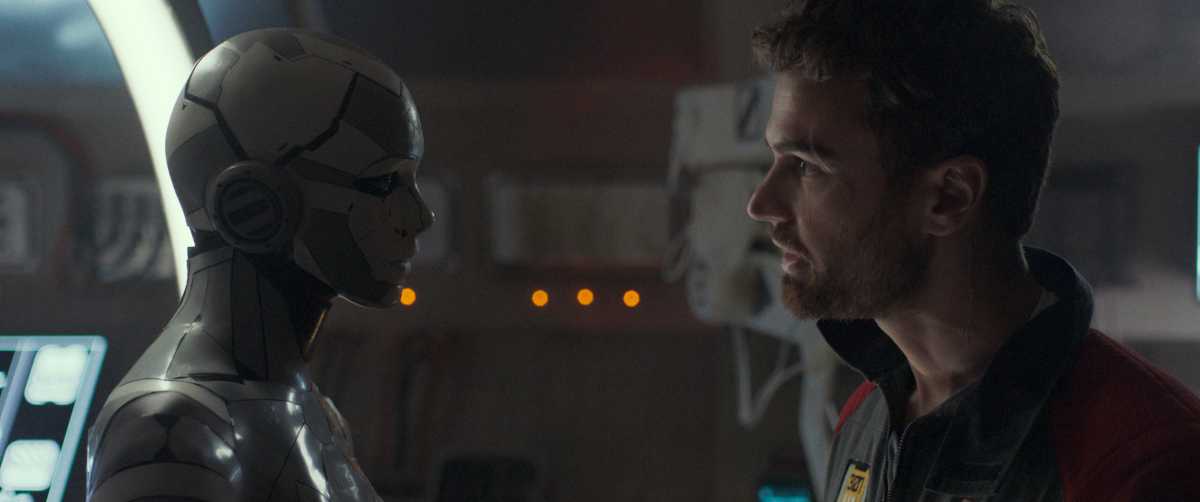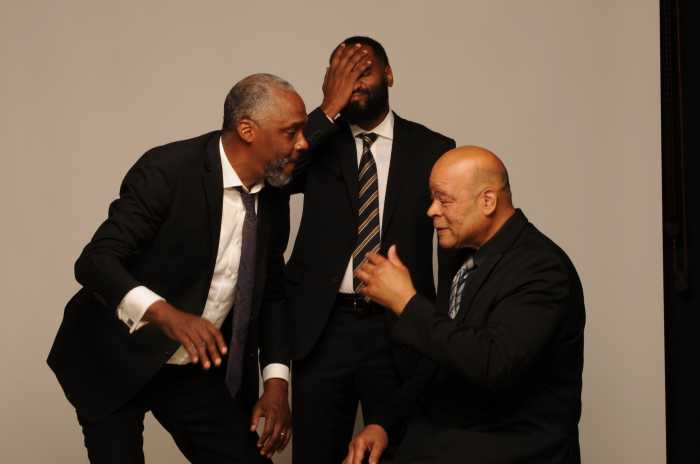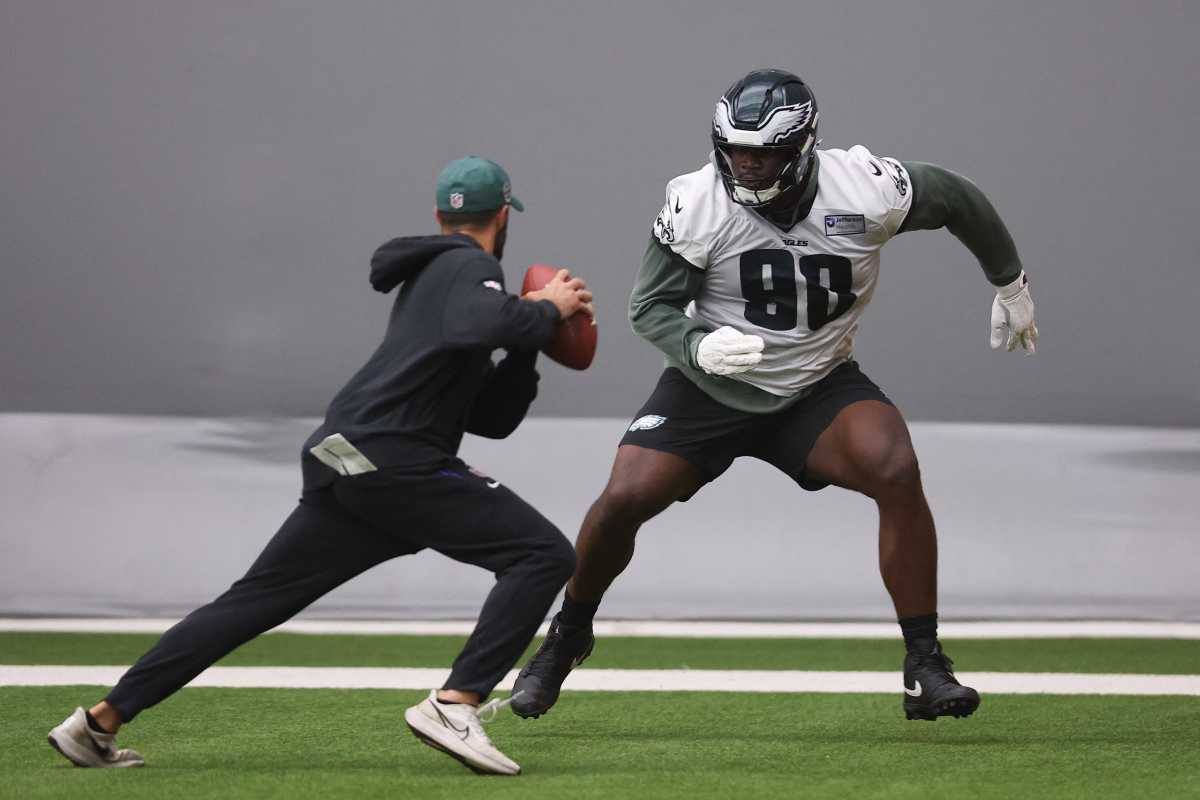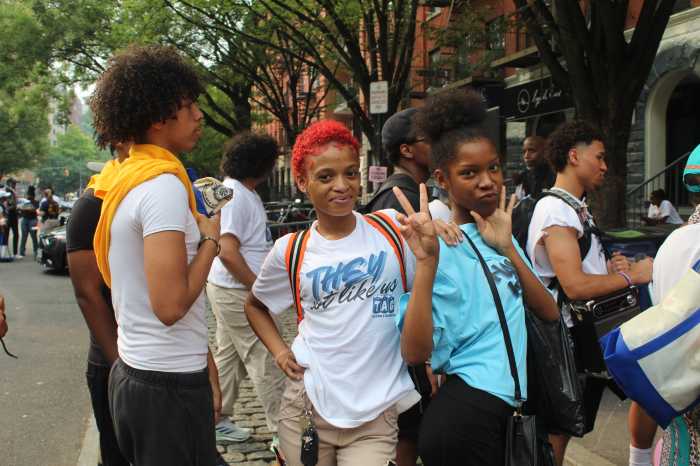Every story has some sort of emotion in it. As human beings, we automatically feel things and display our emotions in everyday life. But what Gavin Rothery’s latest film ‘Archive’ explores is just how complicated those emotions can get, even in an un-human form.
‘Archive’ follows George [Theo James] in the year 2038 who, at the time, is working to produce a “true-human equivalent,” but he has a hidden agenda. George misses his late wife [Stacy Martin] and uses the technology he’s working on to be reunited with her, but that journey of exploration yields much more problems and emotion-inducing situations than originally anticipated.
The film itself poses many questions, and according to actress Stacy Martin, that’s kind of the point. ‘Archive’ shifts reality and brings about a poignant and actually relevant love story right to the screen but does so in a way that will have audience members guessing and also a bit perplexed. Although there are robots and humans involved in the plot, there are still very mortal feelings on all fronts.
Martin sat down with Metro to discuss more on what it was like playing a robot and why this was a challenge she always wanted to take on.
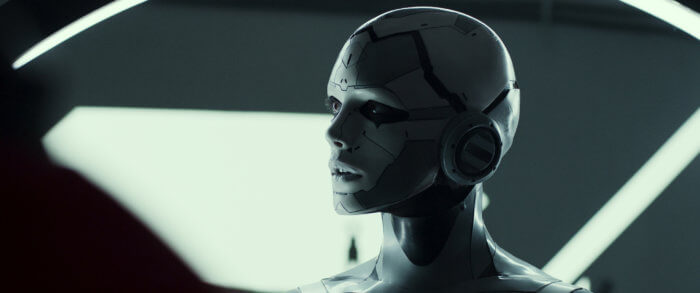
What was it about this role that intrigued you to want to sign on?
The script, and definitely the fact that J3 was a robot. I was looking for something that was just completely different from any other character I’ve played, and on the top of my imaginary list was playing a robot. Then, the script came along and I met Gavin, and he just completely drew me in—just the way he spoke about the story and about just the robot and how he envisioned the film. Also, not only is this just a Sci-Fi film, but it’s also this love story and he [was talking about] how he would play around with these feelings through a love story and I thought it was just fascinating. He also had all of these visual references and he basically talked at me for about an hour about how it would look, and it just blew my mind. It just seemed like a really interesting vision and I kind of wanted to be part of that and I wanted to challenge myself.
Why was it so intriguing for you to play a robot?
It’s something very different, and then when I read the script, this is obviously a robot but there is also so much more about this character. She has feelings, she has memories, she’s very similar to someone who exists. She has humor and I was really interested in just sort of building that person and seeing what it means to play a robot. That’s quite an abstract question and I was very curious as to how my interpretation would come through. And then speaking to Gavin, [with J3] she slowly becomes more and more humanized, and it’s almost like growing up at an already adult age—it’s quite a weird concept. So all of that kind of unknown and abstractness drew me in.
What went into getting prepared for the role?
It turned out that I actually didn’t have that much time to prep. I had met Gavin about the film maybe three weeks before they were going to start pre-production and shooting. Everything was just like very rushed, but in a way, I think it was actually quite helpful. We were doing a lot of costume files because they have to be made kind of depending on how Gavin and I saw the character. There was a lot of figuring out logistics at the beginning, and then you slowly have to free yourself on having focused so much on what kind of latex we were going to wear, or were people going to be painting your hands or were we going to use latex gloves? It was sort of like a real creation from all departments and it was sort of like a mad sprint, and then we started shooting and you embrace everything.
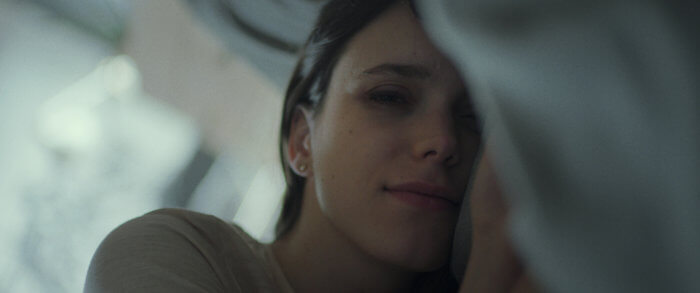
What was the most difficult and what was the best part about playing a robot?
After the film, I voiced J2 and that was such a fun process for me because it was kind of mind-blowingly confusing because I was playing the same character but embodied differently, and we had to figure out how we were going to make J2 slightly younger and more teenager-like. The hardest for me were the costumes because some of them were actually quite painful and quite difficult to sustain for long hours. [But] I had an amazing crew supporting me and they were all just so patient, and I was definitely quite grumpy some of the days. But if I look back now, I definitely don’t regret doing it, and I think that’s part of why I wanted to do this film, to do my job in a slightly different way than I’m used to.
How was it working with Gavin as a director and the rest of the cast?
It was the craziest thing, because Gavin and I had spoken so much it kind of came to the point on set that everything had been said and so we had this space where all of our ideas were there to try. What was so great is that he gave Theo [James] and I the freedom to try things out, and I think as an actor you want to go through that process of trying something out. Theo is also such a wonderful actor and he was such a great partner to work with that it kind of weirdly was easy in that sense.
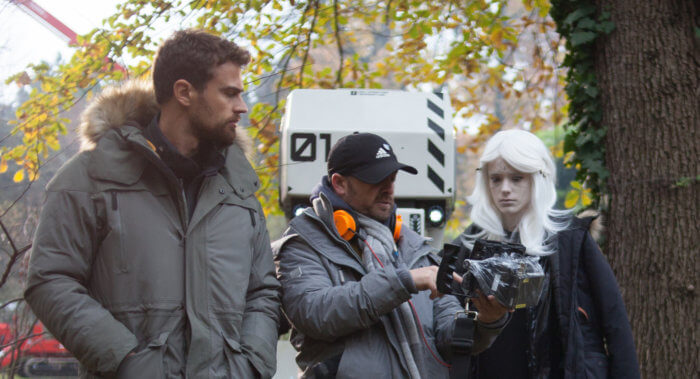
Are there any scenes that stand out to you in particular? Maybe one that you’re excited for audiences to see?
There is definitely one scene and a shot that kind of really took me by surprise, even though I know the story and I knew what was going to happen. There’s this moment with J2 who is an earlier robot version of my character, and she’s just standing in front of a lake, and the implications of that shot and what it means and what she’s about to do just completely brought me to tears, and it took me surprise. And I thought, why am I getting so emotionally affected by a robot? How is this possible? I think that’s the thing about this film, it really manages to create a really strong sense of empathy towards these robots that are not human but have human-like qualities.
Overall, what do you hope audiences take away from the film?
That sense of what is reality and where does our consciousness end and where does it begin? Do we really want an afterlife or is this more the short-term idea? It kind of suddenly opens up questions but in a very simple way.
‘Archive’ hits Virtual Cinema Screenings, On Demand and Digital on July 10, 2020



